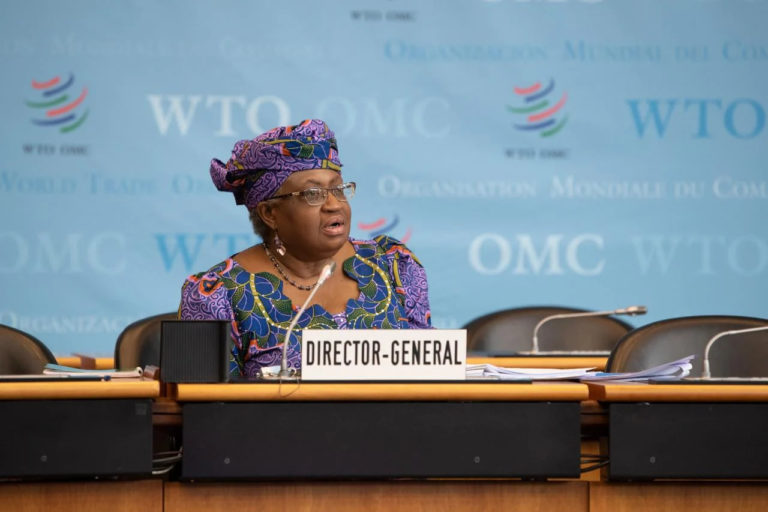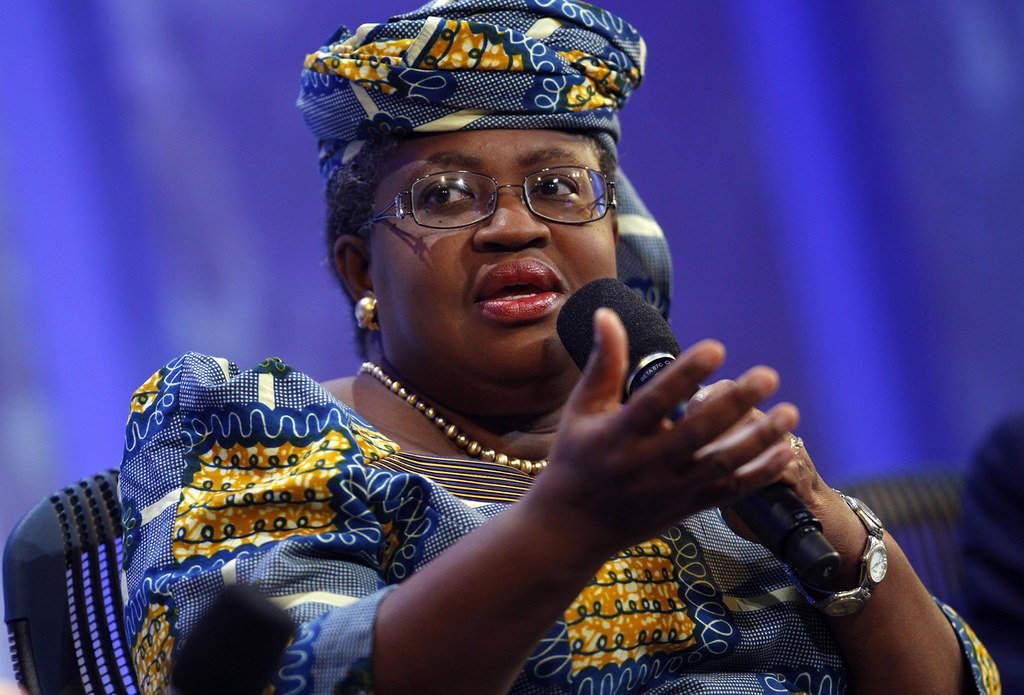The appointment of the first woman as Director-General of the World Trade Organization (WTO) sends a strong signal that equality between men and women can be achieved. But if the goal is to truly empower women, WTO leadership must first address how trade can entrench or reduce structural gender imbalances in the economy.
Ngozi Okonjo-Iweala’s appointment as Director-General of the WTO has been widely welcomed, and with good reason, as she brings strong credentials to the role. Her appointment has also been hailed as historic: she is the first African and the first woman to head the organization, taking office over 25 years after the WTO first opened its doors.
Commentators, media outlets and Ngozi herself have highlighted the enormity of the tasks that lie ahead of her: rebuilding trust in a weakened institution, strengthening multilateralism, and fixing the dispute settlement mechanism, not to mention addressing the COVID-19 pandemic and its consequences. But one of the challenges she faces has scarcely been mentioned, even though it is relevant for over half the inhabitants of our planet: mainstreaming gender into the WTO’s work.
Improving Gender Balance in Senior Staff and in Committees
A survey of the gender balance in the WTO shows significant room for improvement, both at the secretariat level and within the organizational structure. Key bodies have been chaired overwhelmingly by men for decades. A woman’s appointment to the top role is a significant step toward breaking the glass ceiling in this male-dominated organization.
However, WTO Members can do more to ensure they choose committee chairs, especially in key positions like the chair of the General Council, in a way that reflects and recognizes the women diplomats working in trade. Meanwhile, the Director-General can help set the tone for the membership in her choice of Deputy Directors-General—especially given that only a single woman, Valentine Rugwabiza, has ever served in one of these positions.
At the secretariat level, women have long been under-represented in leadership positions and over-represented in clerical roles. This is an area where Ngozi, in the top managerial role of the secretariat, can also take tangible action.

The Two-Way Relationship Between Trade and Gender
Related Articles: How IMF and WTO Leadership Can Make the Difference | UN Report Reveals Gender Inequality Still a Problem
In other words, women’s lower-cost labour is used as a source of competitive advantage in international trade in labour-intensive sectors, especially those where international competition is intense. Gender inequality thus becomes part of the macroeconomic strategy. Meanwhile, in all parts of the world, women-owned enterprises struggle to achieve a competitive advantage in international trade: they tend to be concentrated in lower value-added industries or in sectors with lower export growth potential.
On the other side of the trade and gender relationship is the way in which trade and trade rules affect women differently than men. For instance, trade-related rules on intellectual property that raise the prices of medicines can adversely affect women in their role as consumers if they spend a higher portion of their income on medicines for the family. Trade and investment liberalization can affect women disproportionately when consumption taxes are introduced to compensate for a loss in governmental revenues as a result of tariff cuts and loss of corporate taxes.
Indeed, a standard policy prescription is to make up for the lost revenue by boosting indirect consumption taxes, such as value-added or sales taxes, which often increases women’s tax burden more than men’s. Similarly, liberalization can impact women positively, for instance, if it creates new, decent jobs or when it results in tariff cuts on imported items that they consume. This side of the trade and gender relationship is complex and women will be impacted differently depending on where they live, where they work, and how the goods and services that they consume are affected by liberalization.
Trade Policy Is not Gender Neutral . . .
For most of the WTO’s existence, trade policy was largely understood as being gender-neutral. It was commonly—and incorrectly—assumed that trade policies provided the same opportunities for men and women. Until very recently, trade policy-makers were reluctant to accept that the differentiated and sometimes negative effects of trade for certain groups within countries was any concern of theirs.
In recent years there has been a tentative move away from this position, and in 2017 the majority of WTO Members called for creating a mandate within the organization to address impacts on women through the adoption of the Buenos Aires Declaration on Trade and Women’s Economic Empowerment.
. . . but the WTO Risks Sidestepping the Main Issues
While it is positive that so many key WTO actors have acknowledged that trade is not gender-neutral and that the WTO should take on a role to address that fact, this Declaration sidesteps the key issues at stake.
Also notable is the fact that, while support for WTO work on trade and gender is growing among the membership, the Buenos Aires Declaration—as well as a new working group on trade and gender established last December—has yet to attain the full support of all WTO Members. While the reasons for this vary and the Declaration has significant room for improvement, the fact that some Members are unwilling to discuss it is an issue that cannot be ignored.
As its title indicates, it risks focusing WTO Members’ efforts too narrowly on initiatives that enable women entrepreneurs to access international markets without addressing the structural features of the international trading system that leave vulnerable people, the majority of whom are women, out in the cold.
For sure, helping channel funding and training to women entrepreneurs is easier than devising policies whereby developing countries can improve women’s working conditions and career opportunities in sectors such as tourism and textiles while also maintaining their competitive advantage in world markets. Connecting women entrepreneurs to export markets is also easier than assessing the complex ways in which a particular proposed trade measure could be beneficial or harmful for women in their roles as workers, producers, and consumers.
If Ngozi Okonjo-Iweala really wants to ensure that trade provides women with the same opportunities as it does for men, she will need to push WTO Members, her staff, and partner organizations to engage in earnest with all the aspects of the trade and gender relationship.
This blog is part of a new series dedicated to the nexus between trade, investment, and gender. The author would like to thank Nathalie Bernasconi-Osterwalder and Sofia Baliño for their comments on earlier drafts of this article.
EDITOR’S NOTE: The opinions expressed here by Impakter.com columnists are their own, not those of Impakter.com.— In the Featured Photo: Ngozi Okonjo-Iweala participates in a panel discussion at the Clinton Global Initiative, in New York, September 23, 2009. Featured Photo Credit: REUTERS / Chip East










